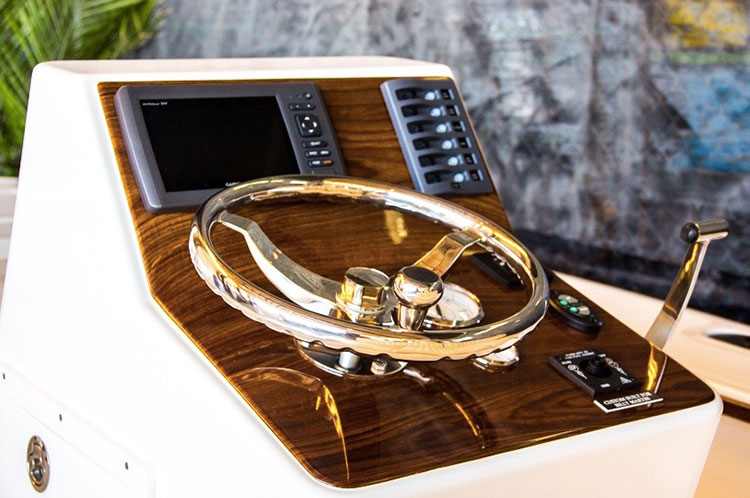Exploring Marine Steering Wheels: Essential Guide for Boating Enthusiasts
2024-08-30
A marine steering wheel is more than just a control mechanism—it's a vital link between the captain and the vessel, providing the control needed to navigate the open waters with precision and confidence. Whether you're an experienced sailor or a novice boater, understanding the significance of the marine steering wheel and selecting the right one for your boat is crucial. In this blog, we’ll explore the key aspects of marine steering wheels, including types, materials, and tips for choosing the best one for your needs.
Types of Marine Steering Wheels
Marine steering wheels come in a variety of designs, each tailored to different types of boats and steering systems. The three main types are:
1. Mechanical Steering Wheels:
- Cable Steering: Common on small to medium-sized boats, cable steering wheels are connected to the rudder or engine via a cable system. They offer direct control and are typically less expensive.
- Rack and Pinion: This type of mechanical steering provides smoother operation and is often used in mid-sized boats. It involves a toothed rack and a pinion gear, offering precise steering.
2. Hydraulic Steering Wheels:
- Hydraulic systems are popular for larger boats and high-performance vessels. They use hydraulic fluid to transmit steering commands, offering smoother and more effortless control, especially under heavy loads.
3. Electronic Steering Wheels:
- Also known as "fly-by-wire" systems, electronic steering wheels are increasingly common in modern boats. They use electronic signals rather than mechanical connections, allowing for advanced features like auto-pilot integration and customizable steering responses.
Materials and Design Considerations
The material and design of a marine steering wheel can greatly impact its durability, comfort, and aesthetic appeal. Common materials include:
- Stainless Steel: Known for its strength and corrosion resistance, stainless steel steering wheels are a popular choice for both durability and style. They often feature a polished or brushed finish.
- Aluminum: Lightweight and resistant to rust, aluminum steering wheels are ideal for smaller boats and are available in various finishes and designs.
- Wood: Traditional and elegant, wooden steering wheels are often found on classic boats. They offer a timeless look but require regular maintenance to prevent wear and damage from moisture.
- Polyurethane: This material is often used for the grips or coverings of steering wheels. It provides a comfortable and non-slip surface, which is essential in wet conditions.
Choosing the Right Marine Steering Wheel
When selecting a marine steering wheel, consider the following factors:
1. Compatibility:
- Ensure the steering wheel is compatible with your boat's steering system, whether it's mechanical, hydraulic, or electronic.
2. Size and Grip:
- The size of the wheel should suit your boat's size and your personal comfort. Larger wheels provide more leverage, which can be useful on bigger boats. The grip material and design should offer comfort and control, especially during long periods of use.
3. Aesthetics:
- The steering wheel is a focal point in your boat's cockpit. Choose a design that complements the overall style of your vessel, whether you're going for a modern, classic, or sporty look.
4. Durability:
- Consider the environmental conditions your boat will face. If you’re boating in saltwater, corrosion resistance is key. Materials like stainless steel or corrosion-resistant coatings are vital for longevity.
Maintenance Tips for Marine Steering Wheels
Proper maintenance is essential to ensure the longevity and performance of your marine steering wheel:
- Regular Cleaning: Clean the steering wheel regularly with fresh water and mild soap to remove salt, grime, and other residues. Avoid harsh chemicals that can damage the material.
- Inspection: Periodically check for signs of wear, corrosion, or damage, especially if the wheel is exposed to harsh conditions.
- Lubrication: For mechanical steering systems, ensure that moving parts are well-lubricated to maintain smooth operation.
Conclusion
A marine steering wheel is a critical component that directly impacts your boating experience. By understanding the different types, materials, and key considerations when choosing a steering wheel, you can ensure that you have the right control mechanism to match your boating style and needs. Whether you're cruising leisurely or tackling rough seas, the right steering wheel can make all the difference in comfort, control, and safety on the water.



